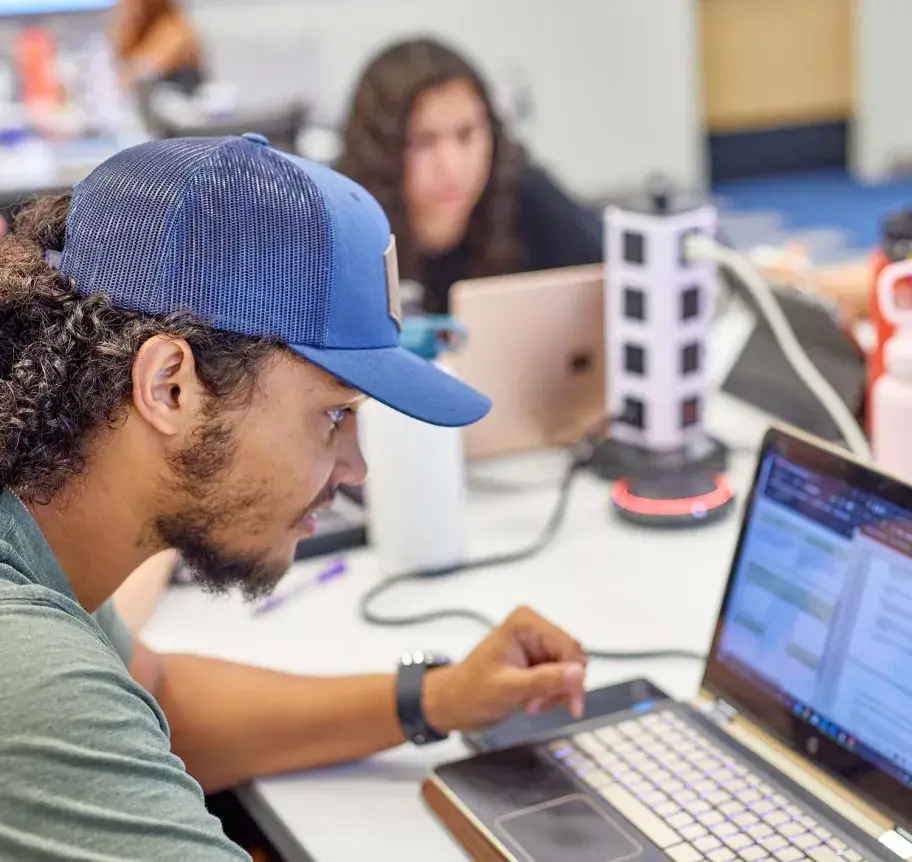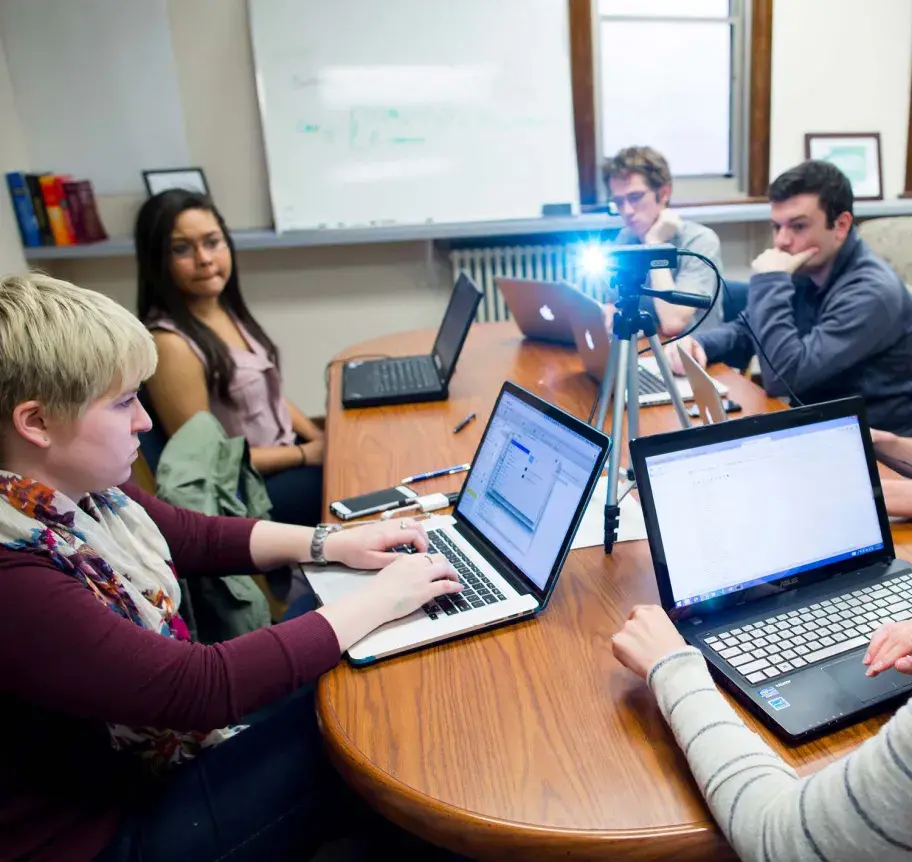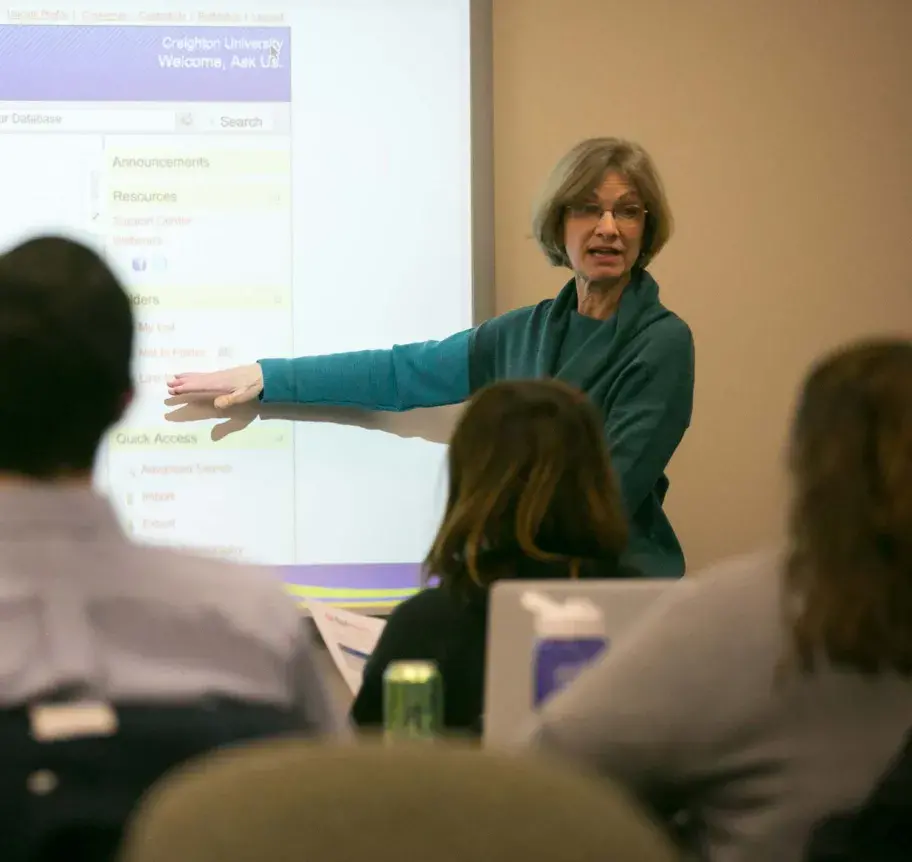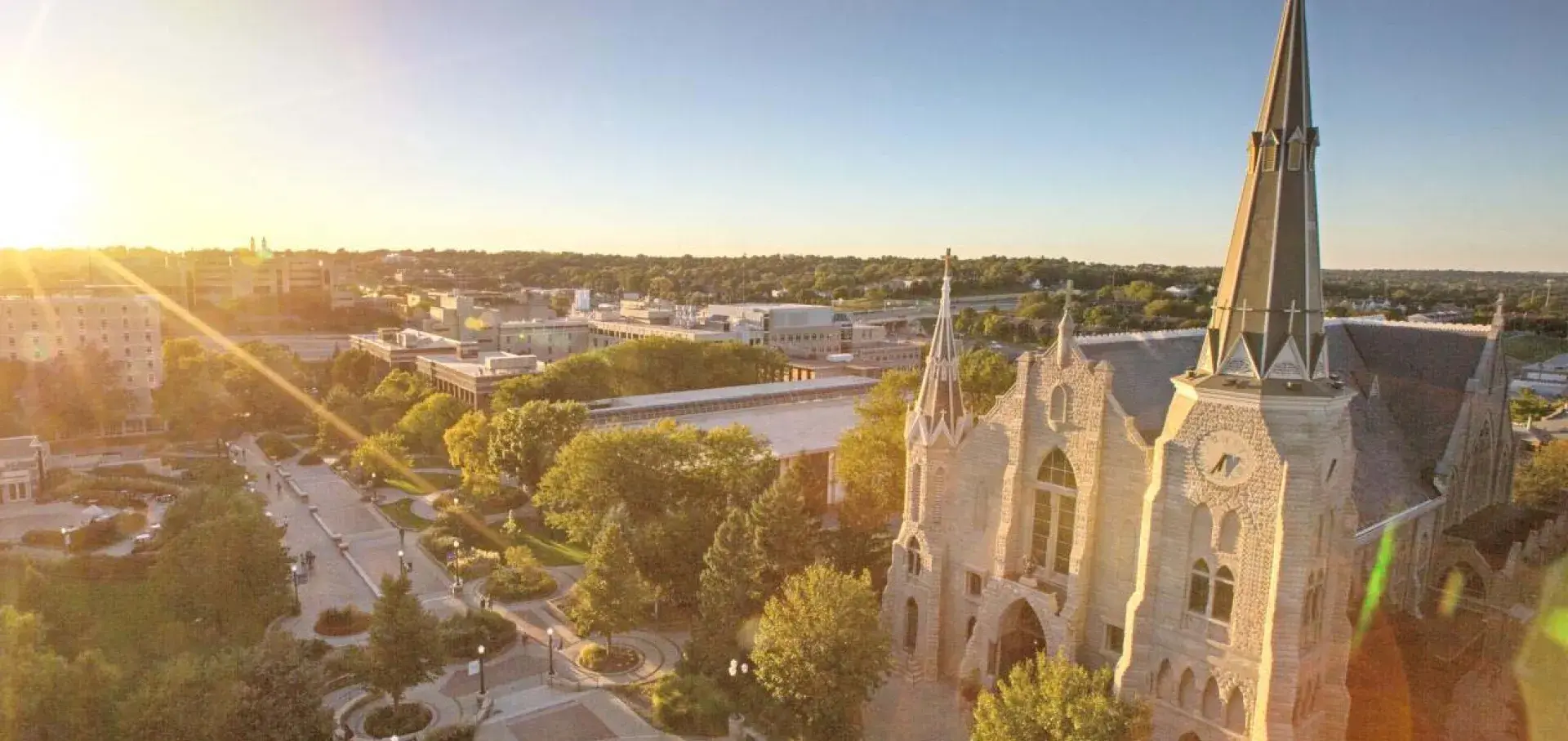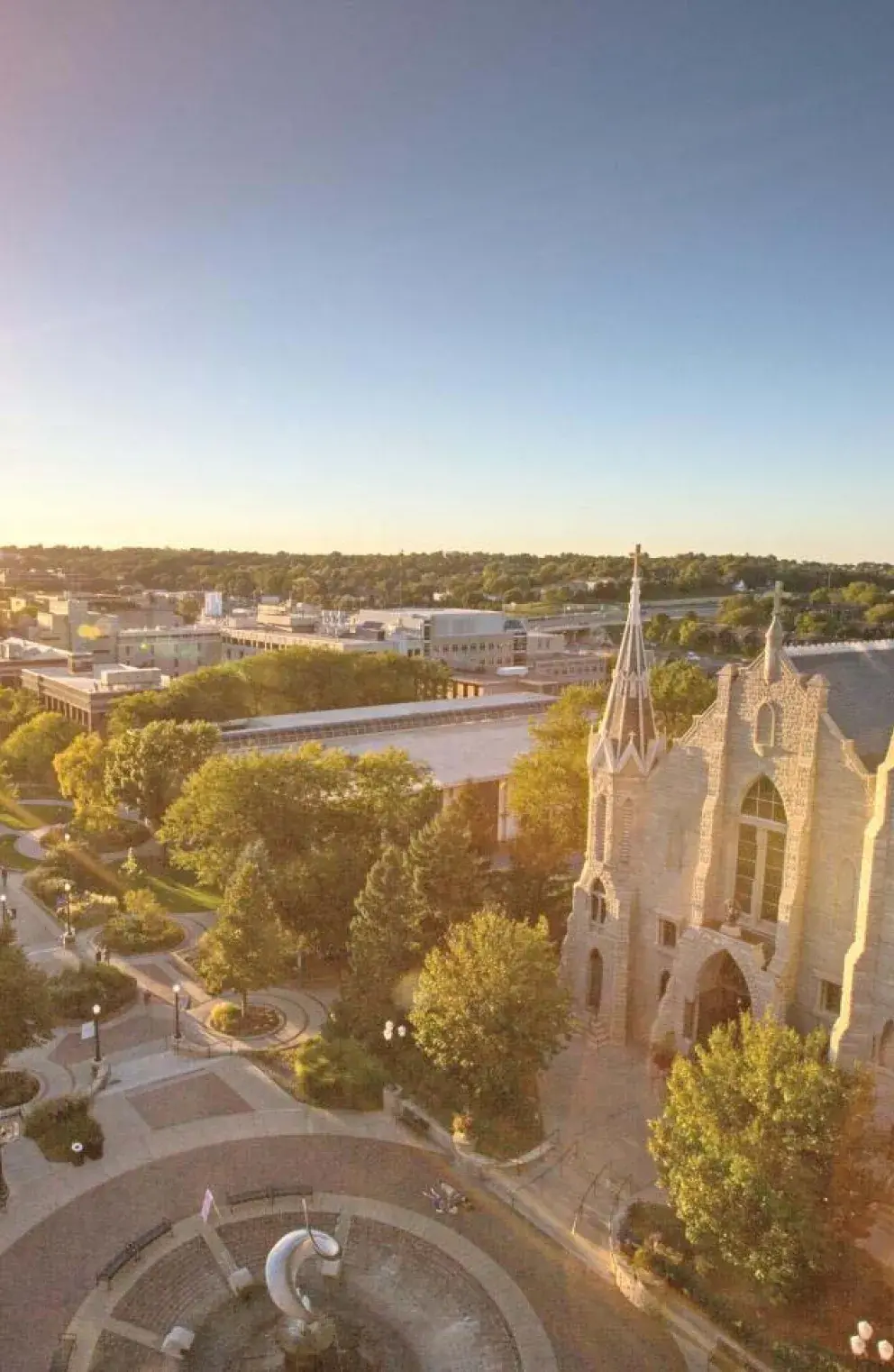
Digital Humanities (Minor)
How does our new digital world tackle the big questions? Digital humanities applies technology to broaden our understanding of the changing world. With this minor, you will learn about the history, ethics and challenges of digital culture and be exposed to new technologies while you work on digital projects.
Students can participate in larger-scale digital projects as they experience a multitude of perspectives including history, English, archaeology, communication studies and computer science.
Program Details
In studying the digital humanities, you’ll become a proficient user of a wide-range of technologies, including:
- Mapping
- Text-mining
- Data visualization
- Web programming
- Historical gaming
Curriculum
Eighteen credits of coursework are required to complete a minor. Students must achieve a cumulative GPA of 2.00 in courses toward the minor.
Required courses:
- HIS 316: Introduction to Digital Humanities
- HIS 435: Digital Cultures
- CSC 221: Introduction to Programming
- HIS 497: Directed Independent Research (This will be replaced by HIS 491: Research in Digital Humanities in the future.)
To learn more about the curriculum, including electives to choose from, visit our course catalog.
Admissions Requirements
Creighton admissions are based upon:
- High school GPA
- ACT or SAT scores*
- Extracurricular activities
- Personal statement to demonstrate creative abilities not reflected in your transcripts
- Recommendation from high school counselor
- Honors sections and advanced placement courses will enhance a candidate’s application
*For students who are choosing to apply test-optional, ACT/SAT exam scores are not required at the time of application for admission.
No previous experience working with digital technologies is required or assumed to be a part of this program, and the only prerequisite is a willingness to learn new skills. However, you must be accepted into a major before declaring a minor. Students declare minors with the minor declaration form online.
Dates & Deadlines
Applications for the fall semester open on Aug. 1 of the prior year. For scholarship consideration, the earlier you complete your undergraduate application, the better. For up-to-date deadlines, visit our admissions page.
Tuition & Financial Aid
Tuition rates are updated each year. Visit our financial aid site to learn more about the cost of attendance.
Financial Aid
Creighton University's Financial Aid Office administers over $200,000,000 in student aid each year from federal, state, institutional and private sources.
To help make your undergraduate studies at Creighton University more affordable, we encourage you to file the FAFSA to apply for financial assistance. A variety of scholarships are also available.
History Fellows Program
Thanks to a generous gift from a Creighton alumnus, who was a history major, the department offers two fellowships to incoming freshman history students each year, beginning in fall 2015. The History Fellows Program provides funding, mentoring and supplemental programming to support undergraduate historical scholarship and career preparation.
Fellows will receive $2,500 per year for up to four years ($10,000 total) for educational expenses. Students will not just study history in books; they’ll actively engage with it. We seek highly motivated students who have the desire to engage in classroom debate, to explore archives and museums and to speak with participants in important historical events.
Public History Internship
- The Public History Internship collaborates with historical, cultural and community organizations in the Omaha Metro area to create opportunities for juniors and seniors in the program to earn history credit while gaining experience in career fields related to American Studies.
Recent placements include:- Creighton University Archives
- Sarpy County Museum
- Durham Museum
- Boys Town Hall of History and the Father Flanagan House
- Summer-session internship credit for work at institutions outside the Omaha area can be arranged through mutual agreement with the Public History Internship Program and the proposed internship site.


